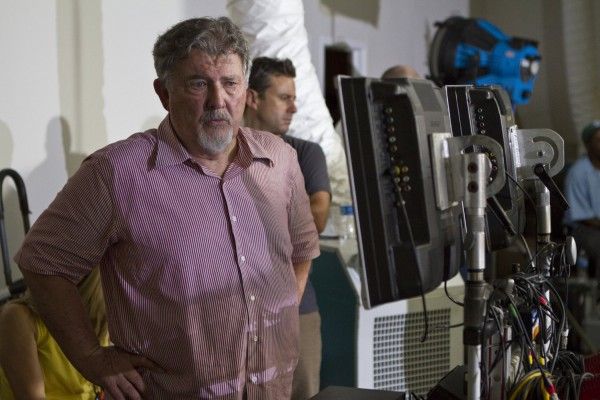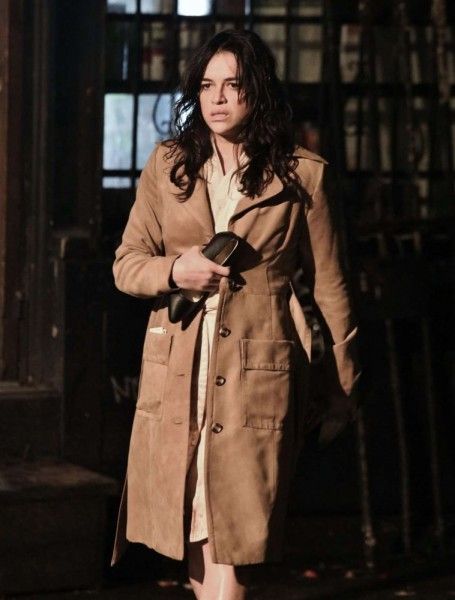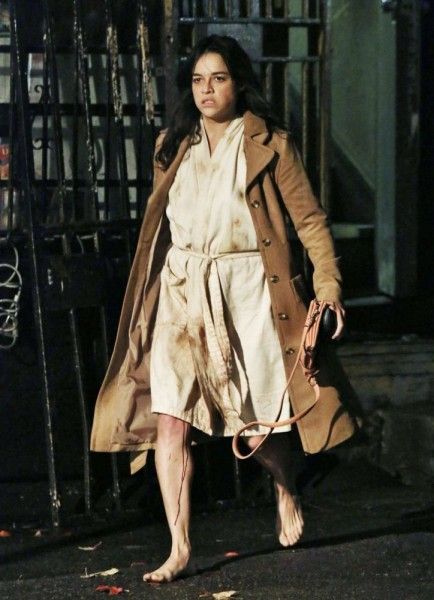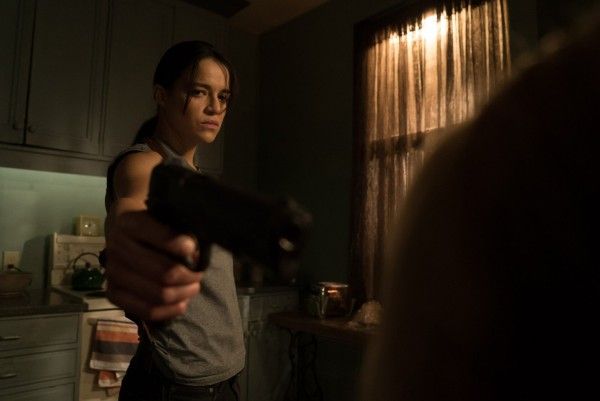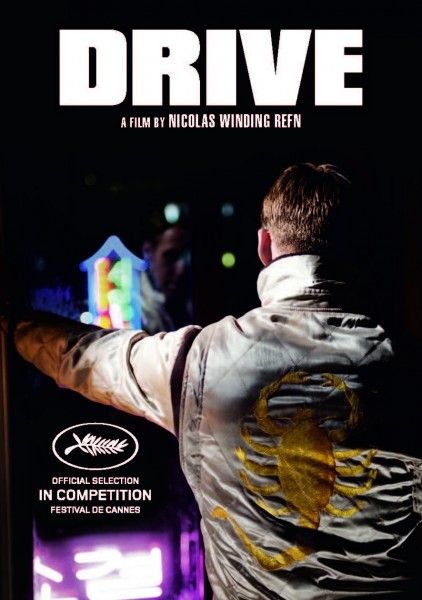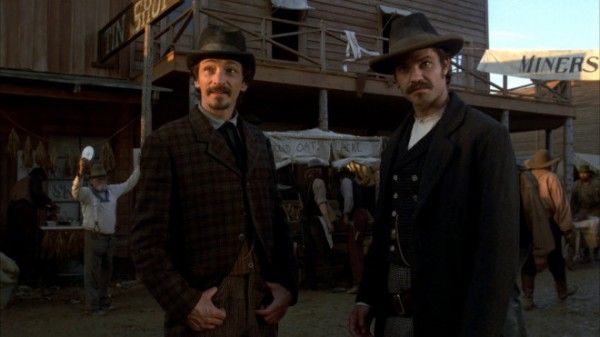Want to know where the contemporary action movie came from? Take a look at writer/director/producer Walter Hill’s career. Over a blistering five years, Hill made The Driver, The Warriors, The Long Riders, Southern Comfort, and 48 Hrs. (plus he co-wrote and produced Alien and presumably ghost wrote on a few others). The movies were terse, direct, character-driven, violent, funny, and obviously thrilling. It was an explosion of of creativity that essentially defined what mainstream entertainment would look like in the 1980s and beyond. Since then, Hill has cranked out plenty of quality content (not the least of which being his work helping create Tales From the Crypt and Deadwood for HBO), yet never seems to quite get the respect he deserves for the massive influence he had over Hollywood. It’s likely because many would dismiss those influential works as mere entertainment, but entertainment is rarely ever so good.
After a few years away, Hill returned to directing recently with (Re)Assignment. It’s a strange and already controversial revenge thriller that premiered at this year’s Toronto International Film Festival. Based on a screenplay that Hill found in the 70s and a graphic novel he penned himself, (Re)Assignment is about an assassin named Frank Kitchen (Michelle Rodriguez) who is kidnapped by a psychotic plastic surgeon (Sigourney Weaver) and involuntarily turned into a woman. Obviously revenge follows. It doesn’t take much imagination to see what folks might find objectionable about that concept, yet Hill treats it all with such genre-movie simplicity that it’s tough to truly take offense. It is just a sleazy n’ campy ride, though admittedly not for everyone.
Collider got a chance to sit down with the genre movie icon during his visit to TIFF and the gruffly endearing raconteur very much felt like one of his characters: intelligent and to the point. Hill was happy to open up about his latest film, his lasting legacy, his lifelong interest in comic books, and why he quit Deadwood after the pilot episode. Read on for all the details.
So your movie actually played in an IMAX theater for the press screening yesterday, did you know that?
WALTER HILL: Jesus. How did it look?
Good. I thought you’d get a kick out of that.
HILL: I do get a kick out of it because as I’m sure you know the movie was made for a—I don’t want to sound tragic—but quite low budget. We shot in twenty something days, so I was using every trick I know trying to make it look like we had some sort of money.
Shooting digital must help compared to the old days.
HILL: Oh yes, it does. That’s certainly true. But it’s still not easy. You know, it’s hard on the actors. Certain sections of the film, obviously the Sigourney Weaver and Tony Shalhoub section, are long dialogue scenes. You need time to rehearse and work it out. So those were tough. Michelle’s stuff tended not to have not so much dialogue, but they were obviously physical. That has it’s own challenges. Anyway. We got it done. No complaints.
I’m assuming that you didn’t ever try to take this one to a studio?
HILL: No studio was going to finance this thing.
You’ve been sitting on this for forty years, right?
HILL: Well, yes and no. Denis Hamil wrote a first draft of a story called Tomboy. This was in the 70s. My agent sent it to me and said, “This is a really crazy idea.” Denis’ draft was very different than what the movie is. But at the same time there was a criminal who killed a plastic surgeon’s wife, a juvenile delinquent. Then when he got out of jail the plastic surgeon jumped him, the operation was performed, and he reverts to a serial killer. It really became a movie about the police trying to solve the problem. They couldn’t understand that the guy they were looking for was no longer a guy. He disappeared and couldn’t be identified. So that was the thrust of the original story.
Did you try to get it made at the time?
HILL: I didn’t do a goddamn thing with it for years. But it always stuck in my head. Then I called Denis up in the 90s to see if it was still available. So I spent my own money because I was sure even then I couldn’t get anyone to put up any dough for this. So I developed my own script, which I didn’t really like. It was too complicated. So I abandoned the project. Then another, Christ, it must have been three years ago I was rooting around in my basement and found Denis’ first draft. I flipped through it and suddenly the movie that you saw was in my head. I think a lot of if it had to do with the fact that I had written a graphic novel and I had this idea for who Frank Kitchen should be. So I called Dennis again and said, I’m sorry I screwed it up the first time, but is the material still available? He said yes, so I wrote a draft really quickly. Then I went to Munich for a retrospective of my movies and for various business reasons stopped in Paris on the way back where I made the deal for the graphic novel. The first graphic novel I’d written had been a success, so they asked me if I had any other ideas and I thought this would fit right in. So they read it, they liked it, and we make the graphic novel.
How soon after did you make the film?
HILL: Not that long after. actually. My agent and I agreed that it was going to be very difficult to set up in America. We could shop a long time trying to get this one going. There also seems to be a general mystery around whether or not I even want to work anymore. So we met Said Ben Said, the producer. He was very clear that it was going to be a low budget, but that I had final cut and all that business.
Did you have Michelle Rodriguez in mind by then?
HILL: No, we actually talked about male actors at first. We talked about transgender actors. But I could quickly see that was tricky. I could barely get it financed with the names that I had in it. We made the deal with one of those contracts that says, “we’ll make the movie if you get X, Y, Z.” So first we got rid of the idea of a male playing the lead, which I resisted but it always came down to the particular person. Think about it. The story is about a vigorously hetero criminal, low in his moral appetites, and amoral in his worldview. A killer for hire looking for simple pleasures. Then he is suddenly, for reasons he doesn’t understand, genitally altered. In his head he is still a guy, Frank Kitchen. But to the world he appears to be feminine. So you can cast a guy, but it seemed to me that you would then be locked into a tremendous amount of make up in every scene and you were asking a guy to play a guy. I didn’t think that was finally psychologically strong enough. It made the movie about the make up instead of the person. So I thought if we cast a woman, then there was more for her to play and you weren’t stuck with as much of the make up. Just at the beginning. So we went through a series of women that we discussed and finally we decided on Michelle. I hadn’t really seen any of those Fast and Furious movies. But I had seen her boxing movie.
Girlfight?
HILL: Yeah, yeah. I thought she was very good in that and it was an interesting little movie. So I said, “Sure let’s meet her.” I’d heard that she was a little difficult. But I liked her right away. She’s tough.
You’ve worked with plenty of “difficult” personalities over the years too. So I’m sure it wasn’t too intimidating.
HILL: (Laughs) Yeah. I have. Half the time whenever I tell people who I want to cast they say, “Ah Christ, don’t work with that son of a bitch.” So we met and we liked each other. She liked the script. I liked her. We made the deal and I have to say now that the movie exists, I can’t imagine anyone else in it. There’s something about her attitude. I always say it’s not about the line readings, it’s the essence. And she has an essence to her that’s powerful.
How did you find reuniting Sigourney Weaver on this since you were so instrumental in kicking off her career with Alien?
HILL: Well, she and I are old friends. We’ve been friends longer than I think she would like me to reveal, but back to the late 70s. We’s run into each other now and then over the years, fairly frequently. This sounds very corny, but she’s not only obviously a very talented actress and a very beautiful woman, she’s a wonderfully decent and nice person. It’s not common in show business. She’s a very strong person, but at the same time has a very natural sense of honour and dignity and decency about her. Anyways, we always talked about wanting to work with each other again. The character was actually written for a guy. Then after we cast Michelle I wanted to look at a woman for the part. The reason I wanted to flip it was that the doctor character as a male seemed to be much more fraught with cliché than if I had flipped it. So with that in mind, what I wanted was someone who brought a very positive image to the film. She is in a sense an ambivalent character. You sympathize with her in certain ways, even though you see that she does horrible things.
Actors never like to hear this, but I think Sigourney brings with her such a repository of positive vibes and heroine material that playing this part would be resisting her usual persona. But at the same time, she would remain in some ways sympathetic. I was confident she could play the archness of the character. So I sent it to her. I didn’t offer it to anyone else. I just sent it right to her and she responded right away. She whipped into town and we shot her part very quickly. She had an enormous amount of dialogue with Tony Shalhoub, who I think helped her much more than I did. He’s such a good actor and he kept her up there. They worked very well together, but I think we shot it all in maybe four or five days.
I enjoyed all of the comic book panel transitions that you used. They were very similar to the material you added to your director’s cut of The Warriors. Is that just a visual experiment that’s always interested you?
HILL: Yeah, that stuff all goes back to when I was a kid, I guess. I always loved comic books and I’m still a great fan of the graphic novel. It always sounds kind of trivial, but when I was a kid I was always so impressed by how serious the comic books were. I always liked how they were half way between literature and the cinema. I liked the visuals and I liked the simplicity of a certain type of moral dilemma. The graphic novel form really interests me and I like the freedom that format offers. When you get into making movies, then the physical mundane reality of life must be presented. But in comics you can jack it up and work in shorthand. I thought that would be useful for this film. I thought as long as I didn’t overuse it, that would work here. It was tricky. There were a lot more and I cut a lot of them out. But with some of them the visual was just so fucking good that we went with it.
I’ve always admired how terse and direct your storytelling style is. Does it frustrate you that most mainstream genre movies aren’t told that way anymore?
HILL: Oh no. I think there’s room for all kinds. I think the problem with the cinema currently is that so much of the money that goes movies that offer a certain kind of repetition. I’m not even against superheroes. It’s not my cup of tea. But there’s just this endless stream of them and they are so repetitious and suspend certain rules in a way that I don’t find dramatically helpful. The imperviousness can be too much. When you had a movie with Steve McQueen or Charles Bronson or Lee Marvin or somebody like that, the bullets were real. With these ones there’s always a ray gun that paralyzes or some of that crap. Those were the comics I never liked growing up anyways. I liked Batman because he was more grounded. I never liked Superman much or Captain Marvel or Shazam.
So you were more into war and Western comics?
HILL: Yeah and the horrors. EC Comics. Those that know me well, especially my brother, like to tell me that I’ve never progressed. They claim that have more or less the same taste that I had when I was ten years old and I have to say that it’s probably true.
Do you still do much script doctoring?
HILL: I don’t do it much anymore. I wouldn’t say never. It is by its nature not something that should be talked about. I still do it occasionally, but not nearly as much as I did twenty or thirty years ago.
What did you think of Drive, since it was so reminiscent of your film The Driver?
HILL: (Laughs) Well, I met Nic Refn a couple of times. I quite like him and think he’s a very good filmmaker. You know, when people told me about the movie I said, “I think you guys are exaggerating because if it was really taking everything from my movie they would never call it Drive. I’m assuming the man would be clever enough to avoid that.” Then when I saw the movie, that’s exactly what I thought. It’s a very different movie. It has certain things, as Nic has told me, that are homage and that’s fine. It’s very complimentary. I bear him no animosity or anything. I think he’s a remarkably talented guy and quite like him.
Have you been surprised and pleased by the resurgence of interest in The Warriors over the last decade or so?
HILL: Sure. Look, we all have a certain vanity if we’re in this industry. I think mind is under reasonable control, but when people are still getting pleasure from something that you did 30 years ago, it makes you feel good. I always say it makes an old man happy.
I’m assuming you didn’t collect the toys or anything like that.
HILL: Nah, I don’t have any interest in that. I have nothing to do with any of that or the remake that they are talking about. I always have the same response, “good luck.”
I always wondered, why didn’t you ever worked on Deadwood again after directing the pilot?
HILL: I had a falling out. I won’t bore you with the details, but it had to do with the post-production process. I had no problems during the shoot and I admire David Milch’s script a great deal. But there was a disagreement about the editing. Oddly enough, after I left they ended up almost exactly where we were when I left. We had much better transitions though. I think a lot of transitions aren’t worth a damn, but we had some really elegant ones and they just chopped those out. But I still have very positive feelings about the whole thing. I thought it was a good piece of work. The prep and the casting and all that went really well and I had a strong hand in it. I still watched the show was quite disappointed when they cancelled it, which as far as I could tell was for no good reason. The characters were really good. We worked out them in the pilot and to be fair many of the others that came after were just as good. I do think that it got a little too self-reflexive in a way that was not wildly healthy. But that’s just an easy opinion. And you know, I didn’t take my name off of it or anything like that. I liked it.

